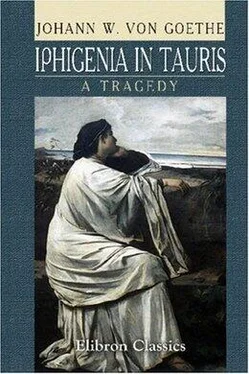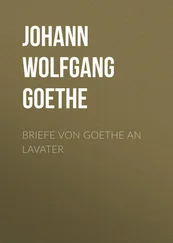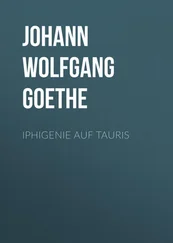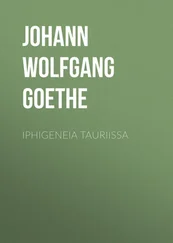THOAS.
As fire opposes water, and doth seek
With hissing rage to overcome its foe,
So doth my anger strive against thy words.
IPHIGENIA.
Let mercy, like the consecrated flame
Of silent sacrifice, encircl'd round
With songs of gratitude, and joy, and praise,
Above the tumult gently rise to heaven.
THOAS.
How often hath this voice assuag'd my soul!
IPHIGENIA.
Extend thy hand to me in sign of peace.
THOAS.
Large thy demand within so short a time.
IPHIGENIA.
Beneficence doth no reflection need.
THOAS.
'Tis needed oft, for evil springs from good.
IPHIGENIA.
'Tis doubt which good doth oft to evil turn.
Consider not: act as thy feelings prompt thee.
SCENE IV.
ORESTES ( armed ). IPHIGENIA. THOAS.
ORESTES,
addressing his followers
.
Redouble your exertions! hold them back!
Few moments will suffice; retain your ground,
And keep a passage open to the ship
For me and for my sister.
To
IPHIGENIA,
without perceiving
THOAS.
Come with speed!
We are betray'd,—brief time remains for flight.
THOAS.
None in my presence with impunity
His naked weapon wears.
IPHIGENIA.
Do not profane
Diana's sanctuary with rage and blood.
Command your people to forbear awhile,
And listen to the priestess, to the sister.
ORESTES.
Say, who is he that threatens us?
IPHIGENIA.
In him
Revere the king, who was my second father.
Forgive me, brother, that my childlike heart
Hath plac'd our fate thus wholly in his hands.
I have betray'd your meditated flight,
And thus from treachery redeem'd my soul.
ORESTES.
Will he permit our peaceable return?
IPHIGENIA.
Thy gleaming sword forbids me to reply.
ORESTES,
sheathing his sword
.
Then speak! thou seest I listen to thy words.
SCENE V.
ORESTES. IPHIGENIA. THOAS.
Enter PYLADES, soon after him ARKAS, both with drawn swords .
PYLADES.
Do not delay! our friends are putting forth
Their final strength, and yielding step by step,
Are slowly driven backward to the sea.—
A conference of princes find I here?
Is this the sacred person of the king?
ARKAS.
Calmly, as doth become thee, thou dost stand,
O king, surrounded by thine enemies.
Soon their temerity shall be chastis'd;
Their yielding followers fly.—their ship is ours.
Speak but the word, and it is wrapt in flames.
THOAS.
Go, and command my people to forbear!
Let none annoy the foe while we confer. (
Arkas retires
.)
ORESTES.
I willingly consent. Go, Pylades!
Collect the remnant of our friends, and wait
The appointed issue of our enterprize.
(
Pylades retires
.)
SCENE VI.
IPHIGENIA. THOAS. ORESTES.
IPHIGENIA.
Believe my cares ere ye begin to speak.
I fear contention, if thou wilt not hear
The voice of equity, O king,—if thou
Wilt not, my brother, curb thy headstrong youth.
THOAS.
I, as becomes the elder, check my rage.
Now answer me: how dost thou prove thyself
The priestess' brother, Agamemnon's son?
ORESTES.
Behold the sword with which the hero slew
The valiant Trojans. From his murderer
I took the weapon, and implor'd the Gods
To grant me Agamemnon's mighty arm,
Success, and valour, with a death more noble.
Select one of the leaders of thy host,
And place the best as my opponent here.
Where'er on earth the sons of heroes dwell,
This boon is to the stranger ne'er refus'd.
THOAS.
This privilege hath ancient custom here
To strangers ne'er accorded.
ORESTES.
Then from us
Commence the novel custom! A whole race
In imitation soon will consecrate
Its monarch's noble action into law.
Nor let me only for our liberty,—
Let me, a stranger, for all strangers fight.
If I should fall, my doom be also theirs;
But if kind fortune crown me with success,
Let none e'er tread this shore, and fail to meet
The beaming eye of sympathy and love,
Or unconsol'd depart!
THOAS.
Thou dost not seem
Unworthy of thy boasted ancestry.
Great is the number of the valiant men
Who wait upon me; but I will myself,
Although advanc'd in years, oppose the foe,
And am prepar'd to try the chance of arms.
IPHIGENIA.
No, no! such bloody proofs are not requir'd.
Unhand thy weapon, king! my lot consider;
Rash combat oft immortalizes man;
If he should fall, he is renown'd in song;
But after ages reckon not the tears
Which ceaseless the forsaken woman sheds;
And poets tell not of the thousand nights
Consum'd in weeping, and the dreary days,
Wherein her anguish't soul, a prey to grief,
Doth vainly yearn to call her lov'd one back.
Fear warn'd me to beware lest robber's wiles
Might lure me from this sanctuary, and then
Betray me into bondage. Anxiously
I question'd them, each circumstance explor'd,
Demanded signs, and now my heart's assur'd.
See here, the mark as of three stars impress'd
On his right hand, which on his natal day
Were by the priest declar'd to indicate
Some dreadful deed by him to be perform'd.
And then this scar, which doth his eyebrow cleave,
Redoubles my conviction. When a child,
Electra, rash and inconsiderate,
Such was her nature, loos'd him from her arms.
He fell against a tripos. Oh, 'tis he!—
Shall I adduce the likeness to his sire,
Or the deep rapture of my inmost heart,
In further token of assurance, king?
THOAS.
E'en though thy words had banish'd every doubt,
And I had curb'd the anger in my breast,
Still must our arms decide. I see no peace.
Their purpose, as thou didst thyself confess,
Was to deprive me of Diana's image.
And think ye that I'll look contented on?
The Greeks are wont to cast a longing eye
Upon the treasures of barbarians,
A golden fleece, good steeds, or daughters fair;
But force and guile not always have avail'd
To lead them, with their booty, safely home.
ORESTES.
The image shall not be a cause of strife!
We now perceive the error which the God,
Our journey here commanding, like a veil,
Threw o'er our minds. His counsel I implor'd,
To free me from the Furies' grisly band.
He answer'd, "Back to Greece the sister bring,
Who in the sanctuary on Tauris' shore
Unwillingly abides; so ends the curse!"
To Phoebus' sister we applied the words,
And he referr'd to thee! The bonds severe,
Which held thee from us, holy one, are rent,
And thou art ours once more. At thy blest touch,
I felt myself restor'd. Within thine arms,
Madness once more around me coil'd its folds,
Crushing the marrow in my frame, and then
For ever, like a serpent, fled to hell.
Through thee, the daylight gladdens me anew.
The counsel of the Goddess now shines forth
In all its beauty and beneficence.
Like to a sacred image, unto which
An oracle immutably hath bound
A city's welfare, thee Diana took,
Protectress of our house, and guarded here
Within this holy stillness, to become
A blessing to thy brother and thy race.
Now when each passage to escape seems clos'd,
And safety hopeless, thou dost give us all.
O king, incline thine heart to thoughts of peace!
Let her fulfil her mission, and complete
The consecration of our father's house.
Me to their purified abode restore,
And place upon my brow the ancient crown!
Requite the blessing which her presence brought thee,
And let me now my nearer right enjoy!
Cunning and force, the proudest boast of man,
Fade in the lustre of her perfect truth;
Nor unrequited will a noble mind
Leave confidence, so childlike and so pure.
Читать дальше












